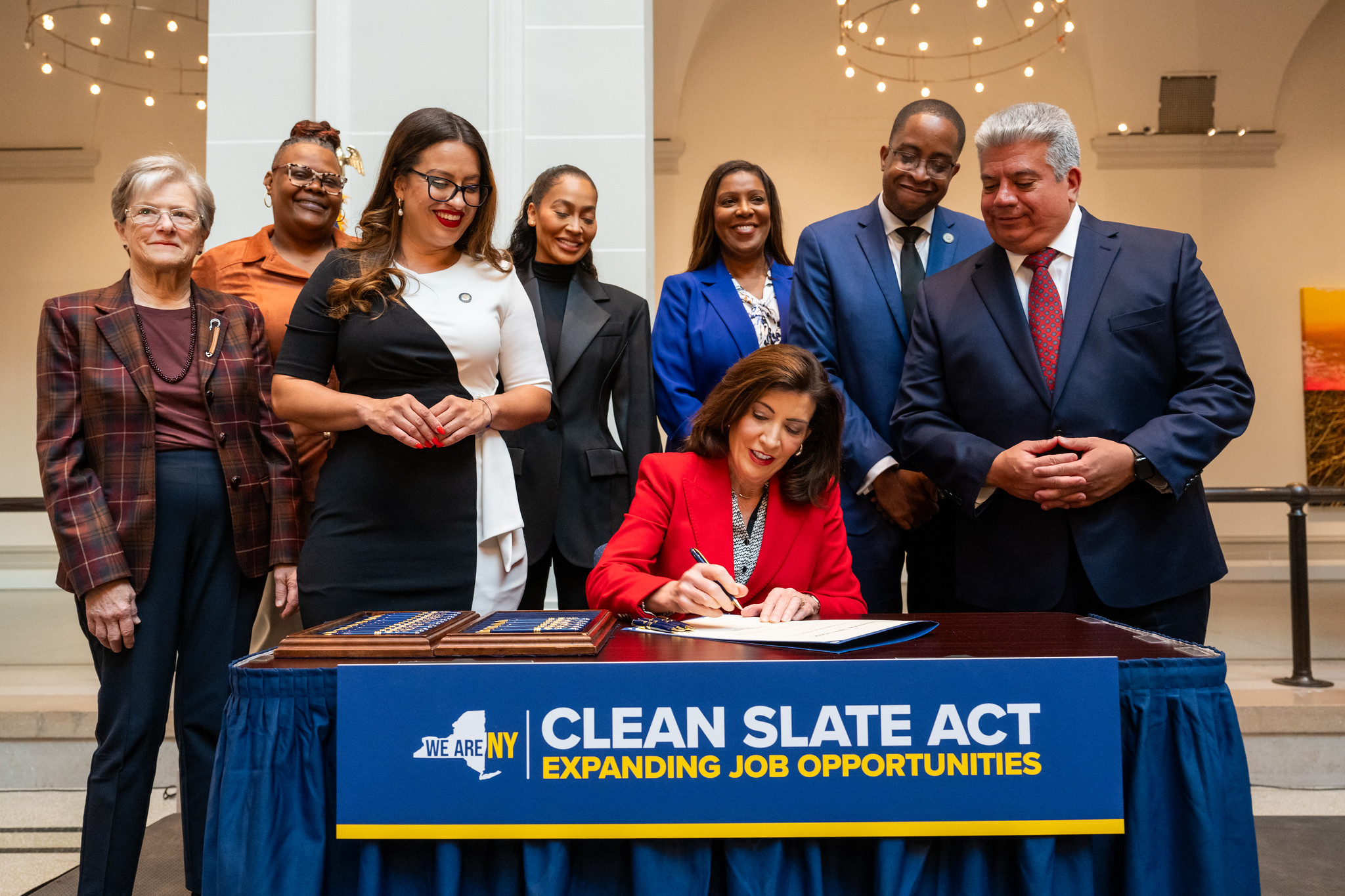Second chances in New York: Clean Slate Act to wipe millions of criminal records

New York Gov. Kathy Hochul signing the Clean Slate Act at the Brooklyn Museum.
Photo: Susan Watts/Office of Gov. Kathy Hochul
Photo: Susan Watts/Office of Gov. Kathy Hochul
New York State took a significant step towards criminal justice reform on Thursday with the signing of the “Clean Slate Act” by Gov. Kathy Hochul.
This groundbreaking legislation, hailed as a crucial step towards restorative justice, is designed to automatically seal millions of criminal convictions, fundamentally changing the landscape for many New Yorkers with past convictions.
“With the signing of this law, it adds to our momentum to get people back to work, give them those opportunities,” Hochul said. “And all those people who’ve been convicted are not able to find someone who will believe in them again, help lift them up, give them a home, independence again, have the dignity of a job, it means everything to people.”